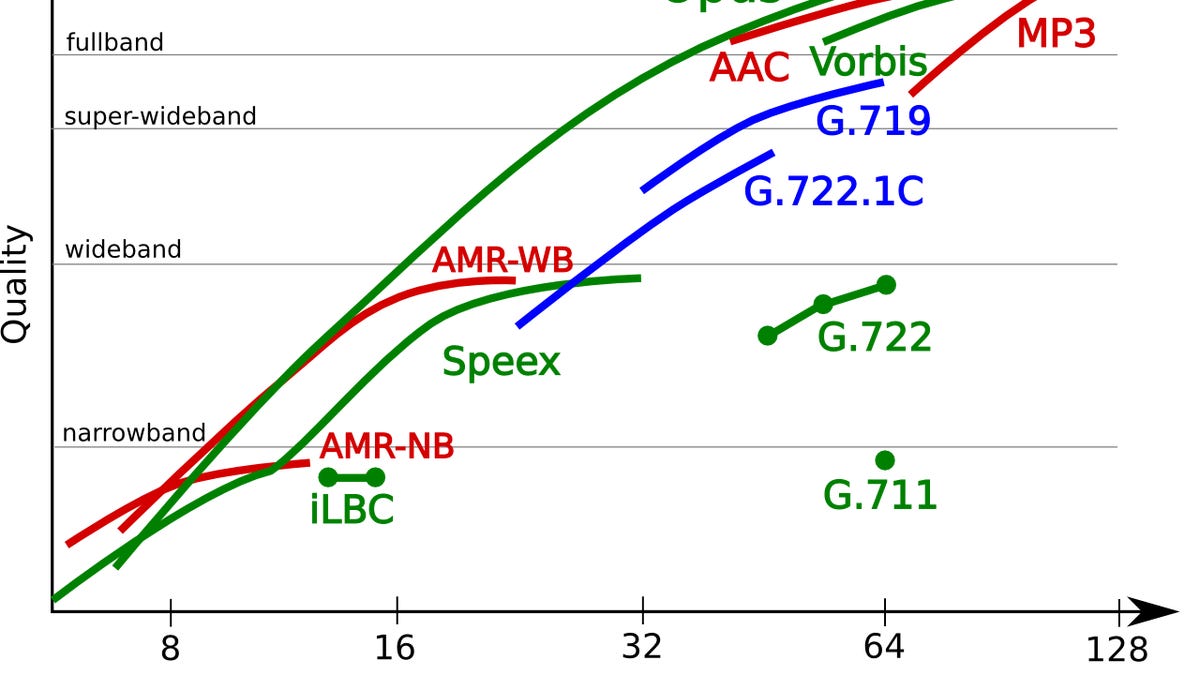IETF standardizes Opus for flexible online audio
A multifaceted sound compression technology is now a standard, smoothing its way to use in technologies such as Web-based voice chats and videoconferencing. Next up: video?

The Internet Engineering Task Force has standardized the Opus audio compression technology as RFC 6716.
The move paves the way for much broader use of Opus for anything from playing music to online voice chats. Opus is what's called a codec because it defines how to encode and decode a stream of data for more efficient storage or transmission.
"Opus is the first state-of-the-art, free audio codec to be standardized. We think this will help us achieve wider adoption than prior royalty-free codecs," Jean-Marc Valin, a Mozilla employee and author of Opus, said in a blog post today.
Voice and video calls are a particular area of interest; Opus was born out of work at Skype, now owned by Microsoft, and the Xiph.org Foundation. Opus is paired with WebRTC, a nascent standard for Web-based real-time communication
Opus combines two audio codecs, one for lower-quality audio on lower-bandwidth connections, and one for higher-quality network circumstances. It's also geared to have very low latency, meaning fewer awkward pauses in online chat while waiting for your words to reach the other parties. And it can combine both codecs when conditions are right to improve overall sound quality.
Codecs are a thorny political, technical, and legal matters -- the latter difficulty most clearly illustrated by the popular video codec, H.264 aka AVC. It requires a patent license in most circumstances, and its successor, H.265 aka HEVC, presumably will also. That license raises a royalty roadblock that's problematic for open-source software and means technology fundamental to the Internet's use isn't freely available.
Another thorny issue: Microsoft doesn't like WebRTC, raising a significant roadblock to its adoption and therefore to the success of Opus.
Opera, Firefox, and Chrome will support the communications standard, with Firefox's WebRTC support scheduled for early 2013.
With Opus standardized, its authors hope to follow the same course with video. That's been tough so far, and the WebRTC group earlier this year didn't agree on use of Google's royalty-free VP8 codec.
But Valin is optimistic. "This spells the beginning of the end for proprietary formats," he said.

